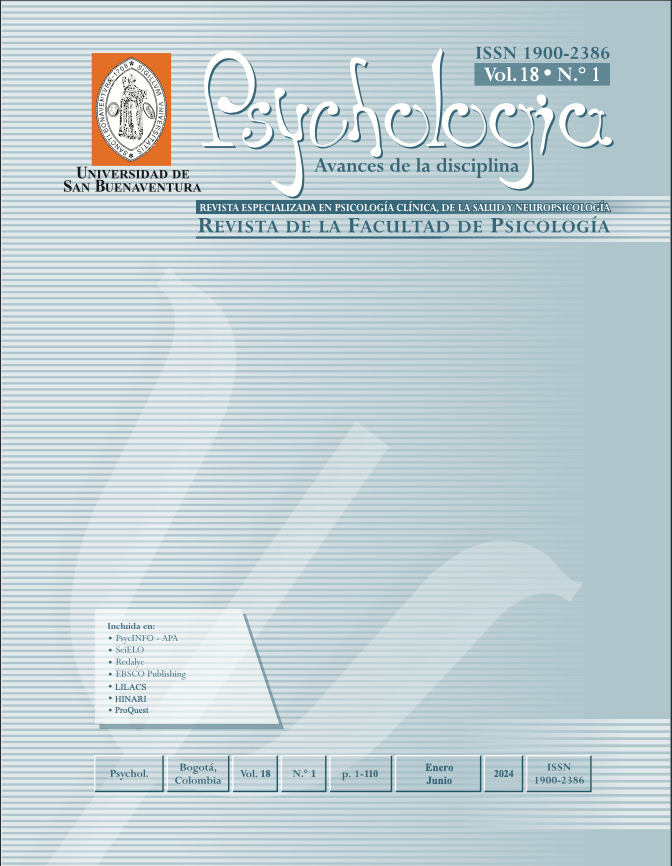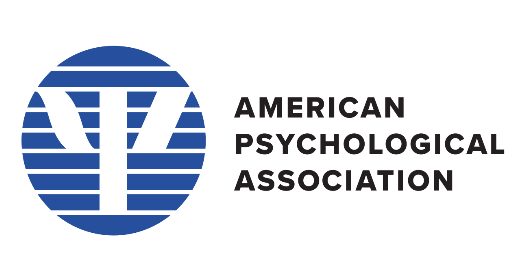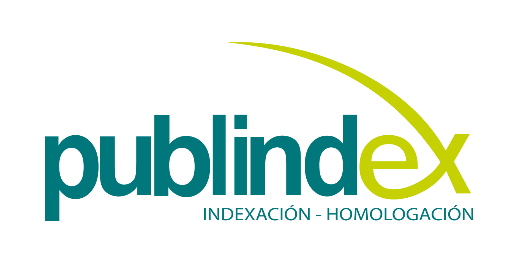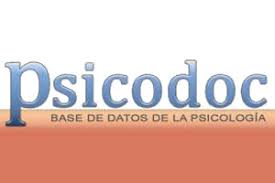This journal provides open, immediate access to its contents, based on the principle that offering the public free access to research helps to promote a higher global exchange of knowledge.
As such, all journal articles are published under a Creative Commons Attribution-NonCommercial-ShareAlike 4.0 International License (CC BY-NC-SA), by which commercial use of the original work or its possible derived works is not allowed, and the distribution thereof must be done with the same license elements regulating the original work.
http://creativecommons.org/licenses/by-nc-sa/4.0/
Abstract
In Colombia, the Decree 2376 of 2010 requires higher education institutions to train human talent in health through the psychologist-internship relationship, complying with the principles stipulated in the Political Constitution, health and education regulations. The objective of the current research is to describe the perception of the impact generated by the provision of psychological care services provided by a psychological office form a university institution under the psychologist-internship model during the years 2020-2021. The study presents a mixed design of an exploratory nature; a sample of 367 participants divided between members of the psychologist-internship committee, supervisors, practitioners and users was collected. The results show an adequate perception of the impact on the training processes, the acquisition of clinical skills and the effectiveness of the therapeutic processes used. The implementation of the psychologist-internship relationship is discussed according to current legal policies and its execution in the process of professional practices. It is concluded that the accompaniment through the psychologist-internship model allows to guarantee an adequate training process and the provision of mental health services.
Keywords:
References
Congreso de la República de Colombia (1991). Constitución Política de la República Colombia. Extraído: http://www.secretariasenado.gov.co/senado/basedoc/constitucion_politica_1991.html
Congreso de la República de Colombia. (1993). Ley 100 de 1993. Extraído de: https://oig.cepal.org/sites/default/files/colombia_-_ley_100.pdf
Congreso de la República de Colombia. (2006). Ley 1090 de 2006. Extraído de: https://www.funcionpublica.gov.co/eva/gestornormativo/norma.php?i=66205
Congreso de la República de Colombia. (2007). Ley 1164 de 2007. Extraído de: https://www.minsalud.gov.co/Normatividad_Nuevo/LEY%201164%20DE%202007.pdf
Congreso de la República de Colombia. (2008). Ley 1188 de 2008. Extraído de: https://www.funcionpublica.gov.co/eva/gestornormativo/norma.php?i=30009#:~:text=Por%20la%20cual%20se%20regula,y%20se%20dictan%20otras%20disposiciones.&text=DECRETA%3A,obtenido%20registro%20calificado%20del%20mismo.
Congreso de la República de Colombia. (2013). Ley 1616 de 2013. Extraído de: https://www.minsalud.gov.co/sites/rid/Lists/BibliotecaDigital/RIDE/DE/DIJ/ley-1616-del-21-de-enero-2013.pdf
Congreso de la República de Colombia. (2015). Ley 1751 de 2015. Extraído de: https://www.minsalud.gov.co/Normatividad_Nuevo/Ley%201751%20de%202015.pdf
Congreso de la República de Colombia. (1992). Ley 30 de 1992. Extraído de: http://www.legal.unal.edu.co/rlunal/home/doc.jsp?d_i=34632
Ministerio de Salud y Protección Social. (2003). Acuerdo 000003 de 2003. Por el cual se adoptan los criterios de evaluación y verificación de los convenios docente-asistenciales necesarios para desarrollar los programas de pregrado o posgrado en el área de la salud. Extraído de: https://www.javeriana.edu.co/documents/10179/241484/Acuerdo+000003.pdf/181cb09a-8634-41b5-8b2c-6ffc8a9775bc
Ministerio de Salud y Protección Social. (2021). Acuerdo 00273 de 2021. Por el cual se adopta el modelo de evaluación de la calidad para los escenarios de prácticas formativas en la relación docencia servicio de los programas de educación superior del área de la Salud. Extraídode:https://www.minsalud.gov.co/sites/rid/Lists/BibliotecaDigital/RIDE/VS/TH/acuerdo-273-de-2021.pdf
Ministerio de Salud y Protección Social. (2021). Decreto 780 de 00273. Extraído de: https://www.minsalud.gov.co/sites/rid/Lists/BibliotecaDigital/RIDE/VS/TH/acuerdo-273-de-2021.pdf
Ministerio de Salud y Protección Social. (2010). Decreto 2376 de 2010. Extraído de: https://www.funcionpublica.gov.co/eva/gestornormativo/norma.php?i=76013#:~:text=El%20presente%20decreto%20tiene%20por,pr%C3%A1ctica%20o%20la%20naturaleza%20jur%C3%ADdica
Ministerio de Salud y Protección Social. (2003). Modelo de Evaluación de la Relación Docencia-Servicio Criterios Básicos de Calidad para Centros de Prácticas Formativas. Extraído de: https://www.unipamplona.edu.co/unipamplona/portalIG/home_54/recursos/01general/04122012/mod_relacion_docencia_servicio.pdf
Ministerio de Salud y Protección Social. (2019). Resolución 3100 de 2019. Extraído de: https://www.minsalud.gov.co/Normatividad_Nuevo/Resoluci%C3%B3n%20No.%203100%20de%202019.pdf
Niño, J. (2022). La Delegación Progresiva en las Prácticas Formativas de Psicología Clínica Recuperado a partir de http://editorial.ascofapsi.org.co/books/la-delegacion-progresiva-en-las-practicas-formativas-de-psicologia-clinica/
Organización Mundial de la Salud. (2022). Por qué la salud mental debe ser una prioridad al adoptar medidas relacionadas con el cambio climático. Extraído de: https://www.who.int/es/news/item/03-06-2022-why-mental-health-is-a-priority-for-action-on-climate-change#:~:text=La%20OMS%20define%20la%20salud,aportar%20algo%20a%20su%20comunidad%C2%BB.
Organización de Naciones Unidas. (2018). La Agenda 2030 y los Objetivos de Desarrollo Sostenible Una oportunidad para América Latina y el Caribe. Extraído de: https://repositorio.cepal.org/bitstream/handle/11362/40155/24/S1801141_es.pdf





















